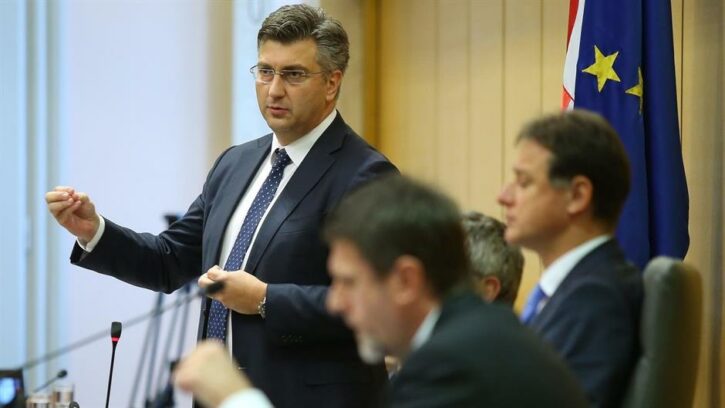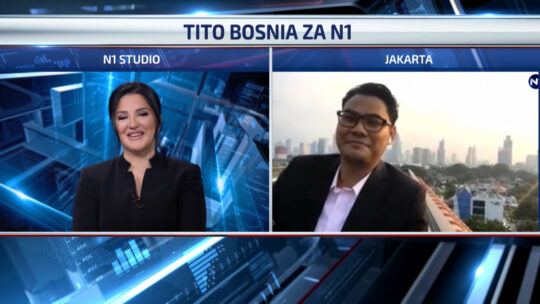
Croatian Prime Minister Andrej Plenkovic commented on Sunday's general election in Bosnia and Herzegovina and said that "for the third time the results have undercut the meaning of the Dayton peace accord", referring the election of Zeljko Komsic to be the Croat member of Bosnia's tripartite Presidency owing to votes of Bosniaks rather than Croats.
Bosnia is divided into two semi-autonomous ethnic-based subnational entities linked by a central government in Sarajevo, the Republika Srpska (RS) dominated by ethnic Serbs, and the Federation of Bosnia and Herzegovina (FBiH) shared by Bosniaks and Croats. The three-member Presidency of the country includes one representative from each ethnic group, meaning both Bosniak and Croat members are voted on by the entire FBiH electorate, even though Bosniaks outnumber Croats four to one in that entity.
Plenkovic was referring to the fact that Komsic had previously served two consecutive terms in the Presidency, from November 2006 to November 2014, and that the ethnic-based power-sharing system was introduced with the 1995 Dayton accords which had effectively ended the 1992-95 Bosnian War.
“Orchestrated actions have been taken to trick the will of the Croat people in Bosnia and Herzegovina,” Plenkovic said, adding that “it was HDZ BiH leader Dragan Covic who actually enjoyed great support among the Bosnian Croats.” However, “votes given to Komsic in constituencies not populated by ethnic Croats seemed to tip the scales in his favour.”
The main Croat party in the country, the nationalist Croat Democratic Union (HDZ BiH), sister party of the Croatian HDZ which is led by Prime Minister Plenkovic, has been vocal in their criticism of the current election law in Bosnia, as due to the system in which both Bosniaks and Croats vote for the Croat member of presidency, a centrist such as Komsic, who leads the centrist Democratic Front (DF) party, has a clear advantage over nationalist Croat party candidates.
Prior to the election in Bosnia, Plenkovic had described the system as “unsustainable”.
“What happened is bad for the stability of Bosnia and Herzegovina and unnecessarily creates antagonism between Croats and Bosniaks,” Plenkovic told parliament on Wednesday, during his annual cabinet report.




